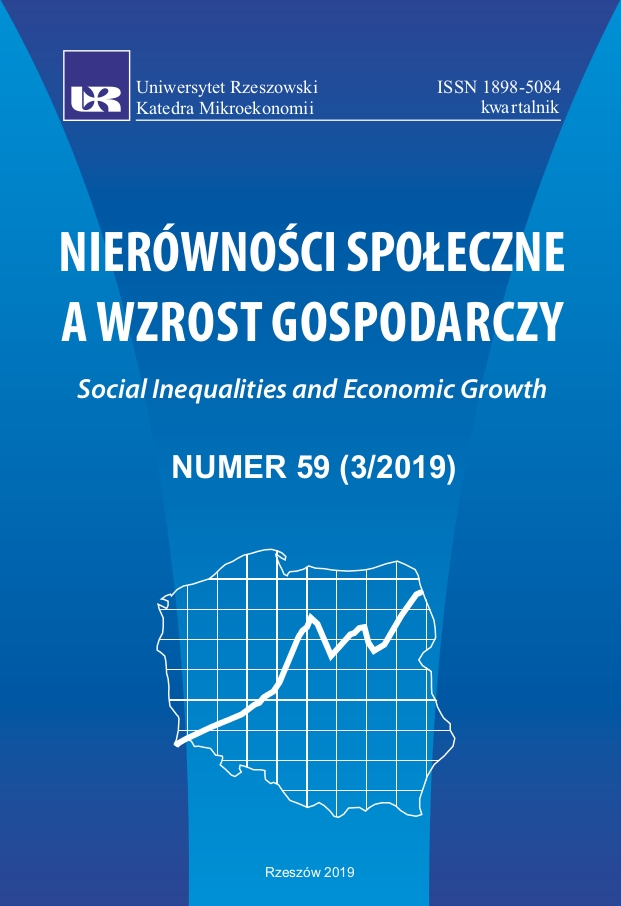Rozwój a system kulturowy
Cultural system and social development
Author(s): Jerzy KleerSubject(s): Politics, Sociology, Socio-Economic Research
Published by: Wydawnictwo Uniwersytetu Rzeszowskiego
Keywords: development; cultural system; human resources; cultural economics; religion; public policy
Summary/Abstract: The links between development and the cultural system are extremely important, although in most scientific disciplines, especially in economic sciences, they are not sufficiently reflected. In most general terms, development is the effect of a cumulated production resource, geographical-natural conditions, accumulated knowledge, an increase in the rights of broad social strata, openness to external solutions, creativity of individuals or larger groups, ability to interact in larger teams, as well as solidarity and tolerance. Development consists of a set of the following components: territory of the state, geographical environment, cities and their special character, population: its nature and the educational level, as well as the particular role of the state and its political model. When defining a cultural system, it should first of all be stressed that, unlike development, which is characterized by variability, the cultural system is of high durability. I see the cultural system as a specific pentagon: language, tradition, history, religion and the attitude of society to the state and the state's attitude to society. Language plays a special role, serves and facilitates the flow of goods and services, and, above all, is a means of communication. It is a mechanism of agreement at the state level as well as with other communities. Languages have a local-national character, and some have a wider range. Language, finally, disseminates various goals and ideologies. Tradition is the accumulation of experiences of the past, both those that actually took place and those mythologized. We can distinguish positive and negative traditions connected with the society of a particular country as well as with the outside world. History concerns the historical continuity of individual countries, especially the emergence of modern states, the effects of World War I and WW II, as well as of the modern era, and the emergence of new states as a result of decolonization and systemic transformation. Religion plays an important role in shaping the system of values, influencing the state, and, at the same time, is characterized as conflict-generating in relation to other religions, which takes place mainly in the period of various crises, in particular civilisational ones. The attitude to the state concerns mainly the mutual relations between the state (the elite of power) and the society. Of the fundamental importance here is the genesis of the state, its continuity, the level of public trust, as well as the political, protective or oppressive models. Development, despite some unification solutions in the fields of economics and technology, and in part of education and culture, does not eliminate differences originating from tradition, history or religion. The state can eliminate them partly thanks to its internal and external policy. At present, the cultural system is one of the most important developmental threats.
Journal: Nierówności Społeczne a Wzrost Gospodarczy
- Issue Year: 2019
- Issue No: 59
- Page Range: 7-32
- Page Count: 26
- Language: Polish

